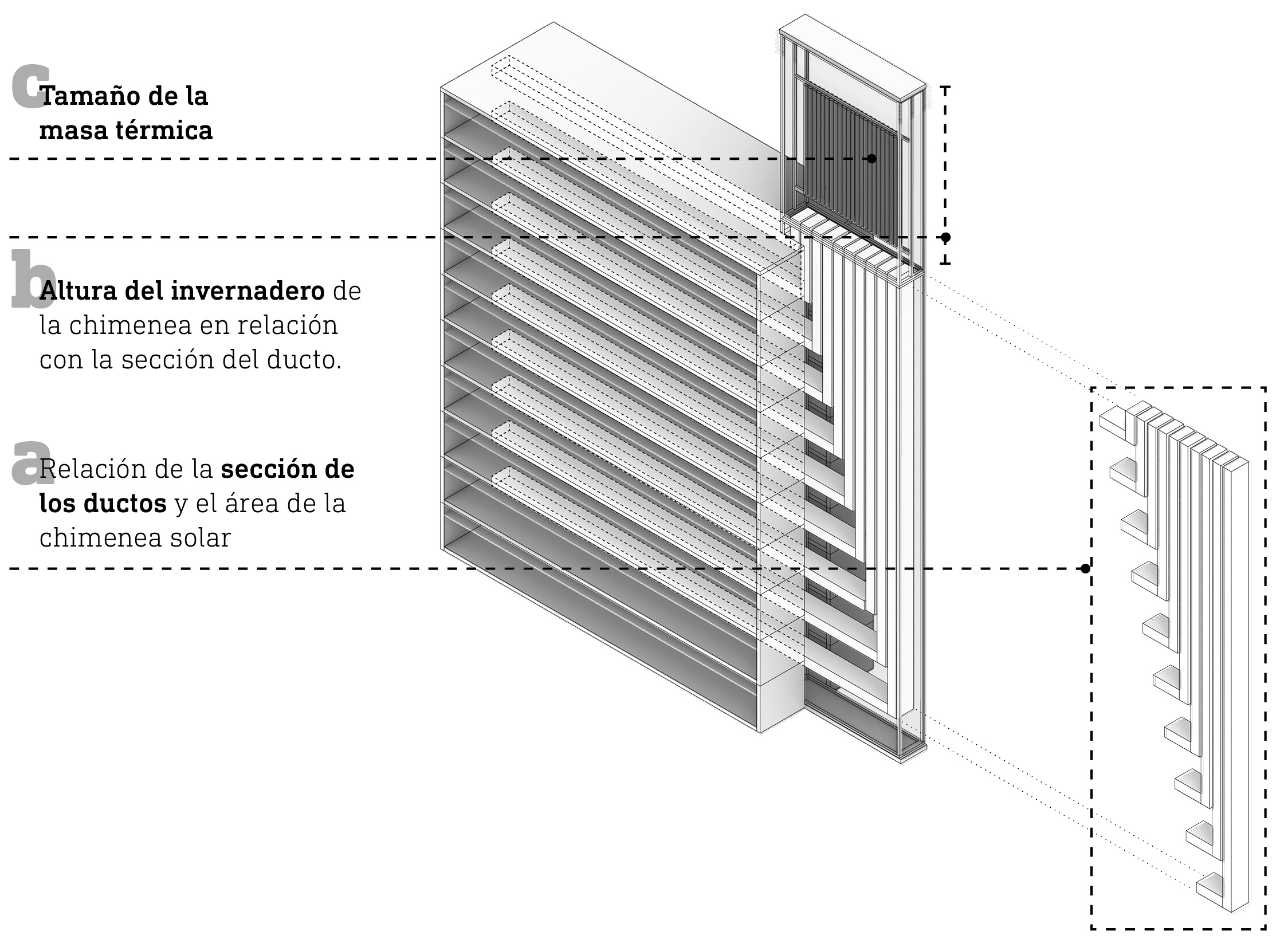The potential of the solar chimney as a natural ventilation strategy in Santiago
Main Article Content
Abstract
In warm climates with high radiation levels, such as in Santiago, ventilation is key in providing good indoor air quality and comfortable thermal conditions. Additionally, natural ventilation is crucial for passive design, as it effectively saves energy that would otherwise be used by mechanical ventilation and cooling systems.
The solar chimney stands out among the natural ventilation strategies for such climates. It is an autonomous device that utilizes solar energy to promote air movement inside a building through pressure differentials. Despite its significant potential for both building scale and user comfort, this ventilation strategy has not been widely studied in the local context for high-rise buildings. On the other hand, new tall buildings designed for commercial use, while meeting high construction standards, tend to have high energy demands for operation and achieve low hygrothermal performance. This is often due to architectural designs that neglect their relationship with the climate.
The aim of this study is to explore natural ventilation through the solar chimney as a strategy for the city of Santiago. This involves evaluating its performance, analyzing the generated air movement, and examining the variability in behavior based on its geometric variables.
Article Details

This work is licensed under a Creative Commons Attribution-NonCommercial-NoDerivatives 4.0 International License.

